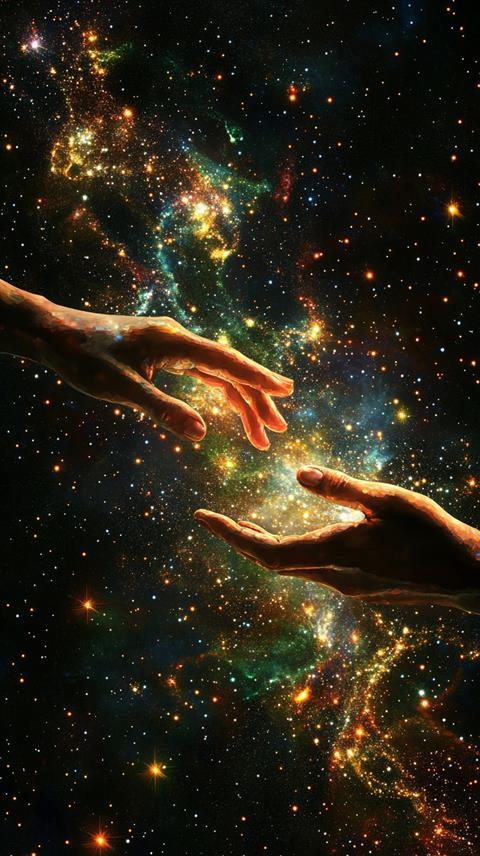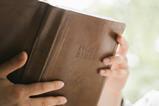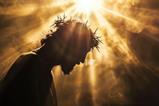The question about God’s existence has sparked countless debates, shaped civilisations and influenced billions of lives. In this new series, Bruce Miller attempts to answer some of the most-Googled questions about God

Many people assume that belief in God requires taking a blind leap of faith - abandoning human reason for wishful thinking.
But this approach would be intellectually irresponsible. Just as we make informed decisions every day - from car purchases to career choices - based on available evidence, we can also examine the question of God’s existence by using our reasoning abilities.
Consider how a jury operates: they must decide “beyond reasonable doubt” based on compelling evidence, not absolute certainty.
Similarly, when exploring God’s existence, we’re looking for sufficiently convincing evidence to reach a reasonable conclusion. This doesn’t eliminate all doubts, but it moves us beyond mere speculation.
Imagine standing in a dark room, wondering whether someone else is there with you. Each piece of evidence is like lighting a candle - with each new light, the room becomes clearer, and you become more confident about what you’re seeing.
Four specific “candles” illuminate the question of God’s existence: logic, science, morality, and experience.
Candle 1: Logic
Why does anything exist rather than nothing? This isn’t just philosophical speculation; it’s a fundamental question about reality. Everything we observe has a cause. The universe exists. Yet science tells us the universe itself had a beginning approximately 13.7 billion years ago in what we call the Big Bang.
This logic leads to what philosophers call the cosmological argument: if everything that exists has a cause, what caused the universe itself? We can’t have an infinite chain of causes. Eventually, we need what Aristotle called an “unmoved mover” or what modern thinkers describe as an “uncaused cause”.
For theists, this points to God as the eternal, self-existing source of all creation.
Candle 2: Science
Far from being enemies, science and religion have often worked together. Many of the most outstanding scientists, from Newton to Einstein, saw their work as an exploration of the mind of God. Modern scientific discoveries have only deepened this sense of wonder.
Consider the staggering improbability of life emerging by pure chance. Astronomer Sir Fred Hoyle calculated the odds of the necessary enzymes for even the simplest living cell coming together randomly as 1 in 10 to the power of 40,000—a number so vast it makes winning the lottery look like a certainty.
He famously compared the probability of life emerging by chance to “a tornado sweeping through a junkyard” and assembling a Boeing 747.
Read more: The most googled questions about God
But the marvel goes deeper. DNA, the “language of life,” contains over three billion letters (base pairs) of genetic code in the human genome alone. The precision required for life is breathtaking - gravity, electromagnetic force, strong and weak nuclear forces, the distance of our sun to earth, the balance of electric charge, the composition of our atmosphere - all operate within extremely narrow limits. A slight variation in any of these would make life impossible.
This finely tuned earth led renowned atheist philosopher, Antony Flew, to abandon his lifelong atheism. Flew concluded that “a super-intelligence is the only good explanation for the origin of life and the complexity of nature.” The intricate design, from the spirals of a snail’s shell to the tessellation of honeycomb, suggests intentionality.
Candle 3: Morality
Across cultures, continents and centuries, humans share a fundamental sense of right and wrong. We find variations of the Golden Rule - treat others as you want to be treated - in virtually every major religion and philosophy. We universally recognise that genocide is wrong; that there’s a moral difference between Mother Teresa and Adolf Hitler.
This isn’t about religious superiority, because many atheists lead remarkably moral lives. Rather, it’s about the universal existence of morality itself. Where did this pervasive sense of right and wrong originate? Why do we feel guilt, offer apologies or seek reconciliation when we’ve done wrong?
Something cannot come from nothing. The very existence and universality of moral consciousness suggests a source - what many call a “morals maker.” The drive for survival alone cannot account for altruistic behaviour beyond our immediate family group. Yet, humans consistently demonstrate concern for strangers and even sacrifice for abstract principles like justice.
Candle 4: Experience
Throughout history, across all cultures and social strata, people have reported personal experiences with the divine. Scientists, artists, teachers and parents from every walk of life claim to have encountered God, received supernatural strength or witnessed answered prayers.
One person’s testimony might be dismissed, but we’re talking about billions of people across millennia. Could they all be hallucinating or lying? Could they all be self-deceived? While some claims might be fabricated or mistaken, the sheer volume and consistency of these experiences across cultures and centuries indicate something important.
Personal experience alone isn’t proof, but when combined with other evidence, it adds significant weight to the case for God’s existence. If even a fraction of these testimonies reflect genuine encounters with the divine, the implications are profound.
The light of evidence
These four lines of evidence - logic, science, morality, and experience - don’t prove any particular religion, but they do point toward the existence of a divine intelligence behind the universe.
The question isn’t whether we can achieve absolute certainty; we rarely have that in any area of life. The question is whether the evidence is compelling enough to conclude, beyond a reasonable doubt, that God exists.
For millions of people throughout history, including many of the world’s greatest thinkers, the answer has been a resounding yes.
With these four candles lighting our exploration, the dark room of uncertainty becomes much clearer. The evidence suggests that we are not alone; behind the cosmos stands a divine intelligence.
Want to know more about how to follow Jesus? Find out more here
Bruce Miller’s latest book, The 7 Big Questions: Searching for God, truth, and purpose (Global Outreach Media) is available now






































No comments yet